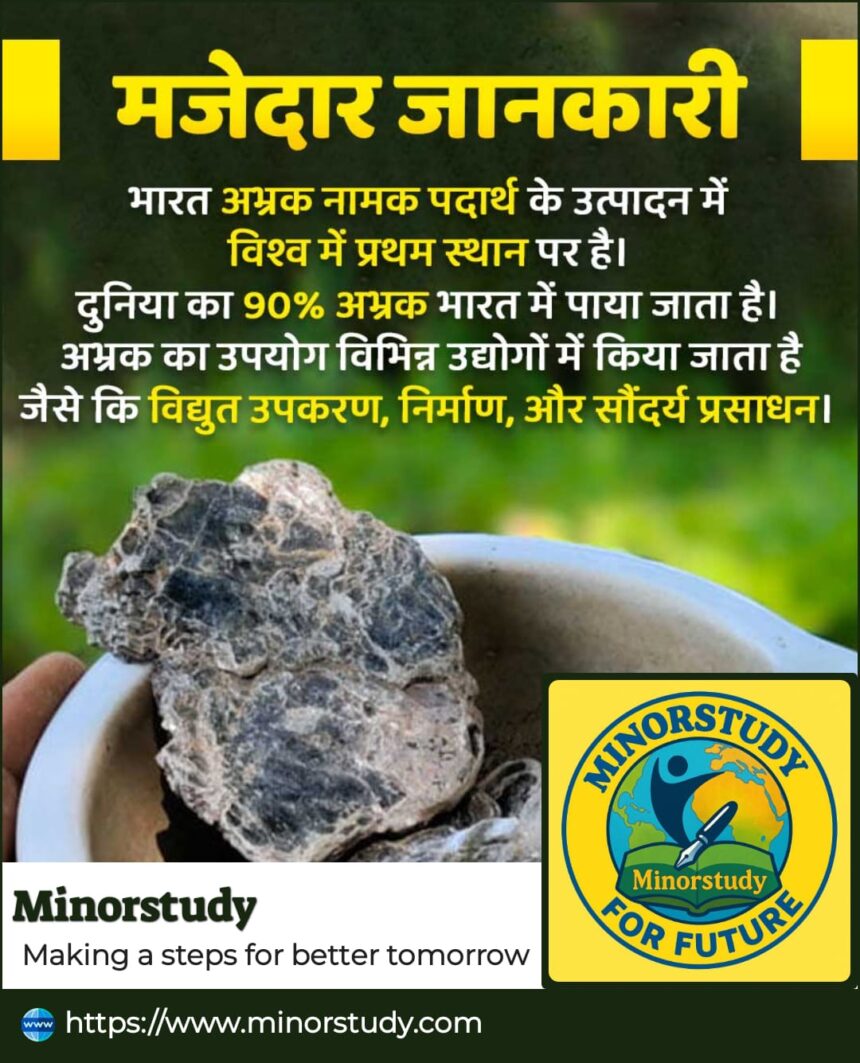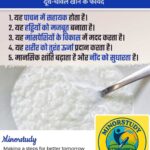🌍 10 Powerful Facts About India’s Global Mica Domination That Will Surprise You
India — a land rich in culture, heritage, and natural resources — holds an extraordinary global position when it comes to the production of mica, a naturally occurring mineral used in everything from mobile phones to makeup. In fact, India ranks number one in the world in mica production, contributing nearly 90% of the global supply.
- 🧾 What Is Mica?
- 🇮🇳 Why India Leads the World in Mica Production
- 📜 History of Mica Mining in India
- 📅 Timeline: Evolution of Mica in India
- 🧠 10 Fascinating Facts About Mica and India’s Role
- ❓FAQs on India and Mica
- ❓What are the main states producing mica in India?
- ❓Why is mica in high demand globally?
- ❓Is mica mining legal in India?
- ❓Is mica harmful to health?
- ❓How is mica used in cosmetics?
- 🧘 Significance in Daily Life
- 🕊️ Cultural & Spiritual Relevance
- ⚠️ Ethical Challenges & Global Concern
- 🌱 Environmental & Social Responsibility
- 🎉 Beautiful Wishing Lines to Share
- 🧩 Why It Matters in Today’s World
- 🏁 Conclusion: From Earth to Everyday — Mica Matters
But mica is not just about industry or economics — it has a fascinating story woven into India’s geography, livelihood, policies, and sustainability efforts.
In this article, we dive deep into the history, facts, FAQs, timeline, uses, challenges, and everyday significance of mica — in a human-friendly and engaging tone that helps us connect the dots between natural resources and real life.
🧾 What Is Mica?
Mica is a group of silicate minerals known for their shiny, layered structure and resistance to heat and electricity. This makes them highly valuable in:
💡 Electrical and electronic appliances
🏗️ Construction materials
💄 Cosmetic products (especially highlighters and eyeshadows)
🚘 Automotive paints and coatings
🧪 Scientific and industrial equipment
🇮🇳 Why India Leads the World in Mica Production
India’s abundant geological reserves, particularly in states like Jharkhand, Bihar, Andhra Pradesh, and Rajasthan, make it the largest mica-producing country in the world.
🏆 India accounts for 60–90% of global mica output
🌍 Indian mica is exported to countries like China, USA, Japan, and several European nations
🧑🏭 Thousands of rural families are engaged in mica mining and sorting
📜 History of Mica Mining in India
Ancient times: Mica was used in Ayurveda for medicinal purposes and in temple murals for its shimmering properties
British colonial era: Commercial mica mining began in the 19th century, mainly for use in electrical insulations
Post-independence: India emerged as the world’s leader in mica production
1990s onward: Environmental concerns and regulations slowed production, but informal mining grew
Present: India is still the world’s top producer, with increased focus on sustainable practices
📅 Timeline: Evolution of Mica in India
| Year/Period | Key Event |
|---|---|
| Before 1000 BCE | Used in ancient medicine and rituals |
| 1890s | British start large-scale mica mining |
| 1947 | Post-independence boost in mica trade |
| 1960–80s | India exports major share of world’s mica |
| 1990s | Mines shut due to environmental laws, illegal mining rises |
| 2016–2025 | Global awareness on ethical sourcing & child labor leads to reforms |
🧠 10 Fascinating Facts About Mica and India’s Role
India produces nearly 90% of the world’s sheet mica
Jharkhand alone contributes more than 40% of total mica exports
Mica can withstand up to 600°C, making it ideal for electronics
It has natural reflective qualities, perfect for high-end cosmetics
Mica was once called “silver of India” due to its luster and export value
Traditional Indian Ayurvedic medicine used mica as Abhraka Bhasma
Mica mining supports thousands of tribal and rural families
Illegal mica trade has led to child labor issues, now being addressed globally
India has mica reserves of over 59,000 tonnes
Mica is biodegradable and non-toxic, making it eco-friendly compared to synthetic alternatives
❓FAQs on India and Mica
❓What are the main states producing mica in India?
Jharkhand, Bihar, Andhra Pradesh, and Rajasthan are the primary mica-producing states.
❓Why is mica in high demand globally?
Because of its insulating, heat-resistant, and shiny properties, mica is used in electronics, automotive, beauty, and construction sectors worldwide.
❓Is mica mining legal in India?
Yes, licensed mining is legal, but illegal and informal mining has been a concern. India is now focusing on regulating and improving ethical sourcing.
❓Is mica harmful to health?
Natural mica is non-toxic, but prolonged exposure to mica dust in unregulated mines may pose health risks to miners.
❓How is mica used in cosmetics?
Mica adds shimmer and glow in products like eyeshadows, highlighters, lipsticks, and even nail polish.
🧘 Significance in Daily Life
You might not even realize it, but mica touches your life every day.
| Daily Use | How Mica Is Involved |
|---|---|
| 💄 Makeup | Adds shimmer in eyeshadows and powders |
| 📱 Phones | Used in capacitors and insulation |
| 🧼 Soaps | Adds sparkle to transparent soaps |
| 🏠 Wall Paints | Provides sheen and durability |
| 💡 LED Bulbs | Heat-resistant insulator |
🕊️ Cultural & Spiritual Relevance
🛕 Used in Ayurvedic medicine as Abhraka bhasma, believed to rejuvenate health
🪔 Employed in traditional lamps and religious items for its glow
🎨 Used in folk paintings like Madhubani and temple frescoes for sparkle
⚠️ Ethical Challenges & Global Concern
While India dominates mica production, concerns arose about child labor and unsafe mining practices in unregulated sectors.
Global Response:
International cosmetic companies now demand ethically sourced mica
NGOs and governments are working together to ensure transparency and safe practices
India is pushing toward formalizing mining and ensuring labor welfare
🌱 Environmental & Social Responsibility
Mica mining is increasingly becoming eco-conscious, with waste minimization and sustainable practices
Promoting women and community empowerment in mining regions
Governments are enforcing regulations for child-free and safe mining zones
🎉 Beautiful Wishing Lines to Share
🌟 “May your life shine bright like Indian mica — natural, strong, and luminous!”
🪔 “Wishing you the strength of the earth and the sparkle of mica in every step you take.”
🧡 “Let’s honor the hands that bring sparkle to our lives — from earth to industry with dignity.”
🧩 Why It Matters in Today’s World
Understanding mica and India’s leadership in its production helps us become responsible consumers.
It urges us to:
✅ Choose ethically sourced products
✅ Support sustainable industries
✅ Respect the labor behind the beauty
✅ Be aware of the global economy’s human face
🏁 Conclusion: From Earth to Everyday — Mica Matters
Mica is more than a glittering mineral — it’s a symbol of India’s natural wealth, a pillar of several industries, and a reminder to value ethical production.
As consumers, citizens, and humans, we can:
🌍 Promote awareness and education
🌟 Support fair trade and sustainability
🧡 Respect the natural gifts that India provides to the world
“Behind every glowing highlighter and shining mobile screen lies the shimmer of India’s mica — let’s make sure it shines ethically and sustainably.”








